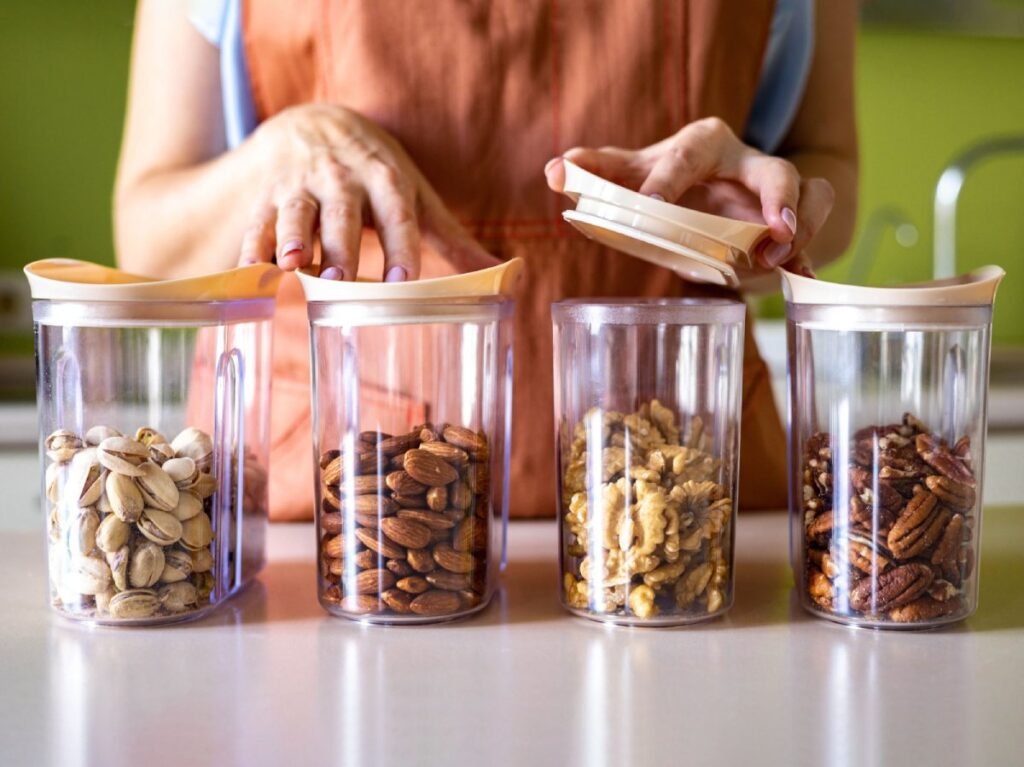The monsoon brings cooler air and beautiful skies but it also brings a big problem for dry fruit lovers: moisture. The moment humidity rises, your premium almonds turn soft, your cashews lose their crunch, and your carefully stored dates start to ferment or mold. So, how do you make sure your dry fruits stay fresh, fragrant, and safe to eat?
In this guide, we’ll explore the best way to store dry fruits during monsoon, with a special focus on how to keep dry fruits fresh in humid weather, prevent spoilage, and store dates, almonds, and cashews properly – all while protecting your investment in health and taste.
Why Dry Fruits Spoil Faster in Monsoon
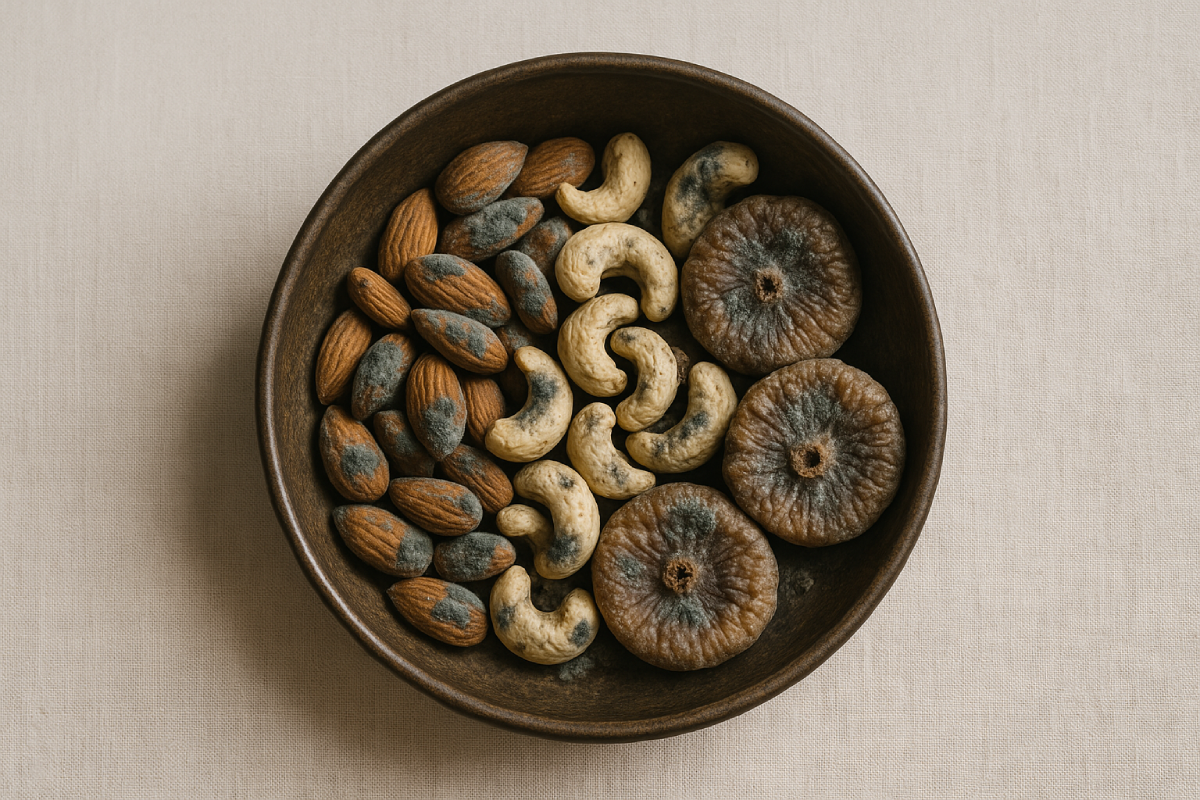
Dry fruits are hygroscopic – they absorb moisture from the air. In the rainy season, this leads to:
- Clumping
- Loss of crunch and flavor
- Mold growth
- Shortened shelf life
This is especially true when dry fruits are stored in open containers, non-airtight bags, or exposed to kitchen heat and moisture.
General Storage Tips to Keep Dry Fruits Fresh in Humid Weather
If you want your dry fruits to last through the monsoon, these basics are non-negotiable:
- Use Airtight Containers
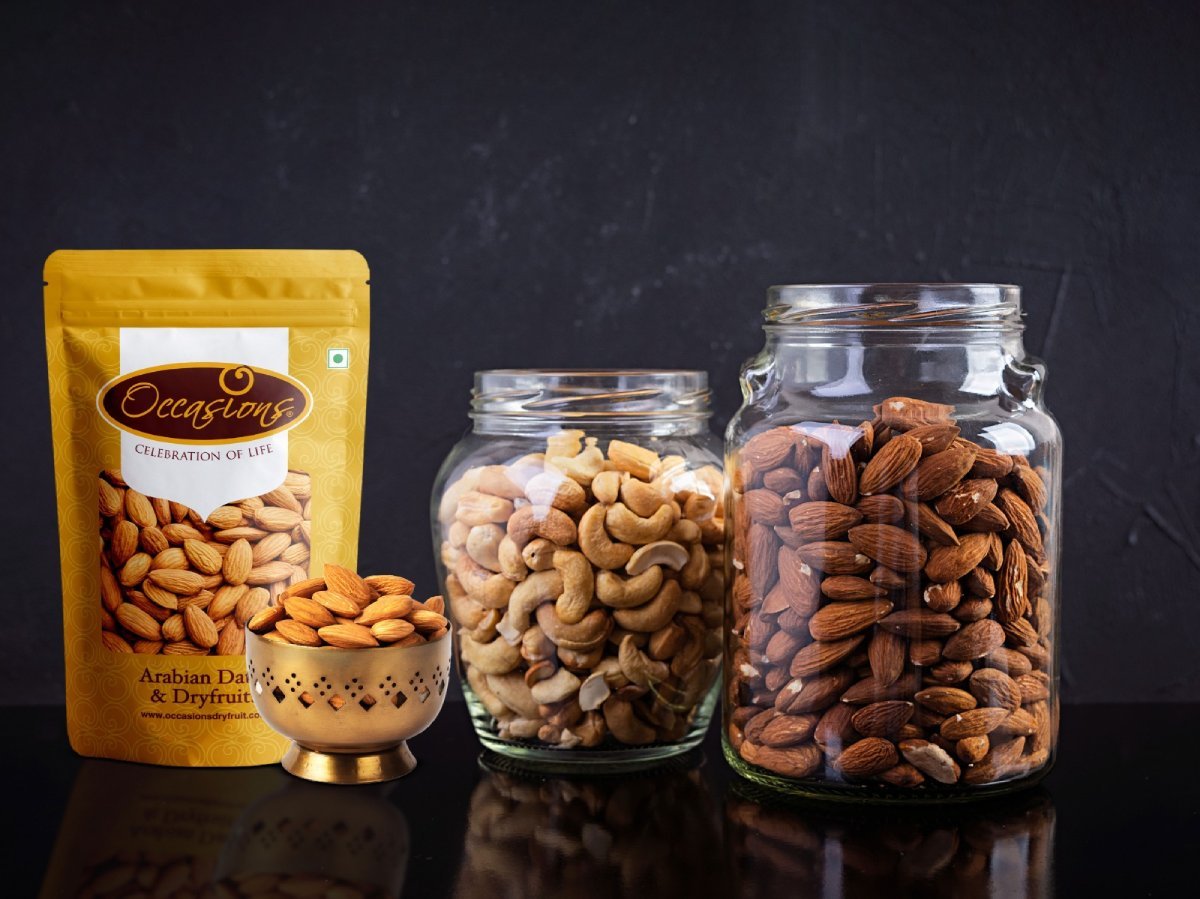
Switch from plastic pouches to glass jars with airtight lids. They keep out air, pests, and moisture.
- Keep Away from Heat & Light
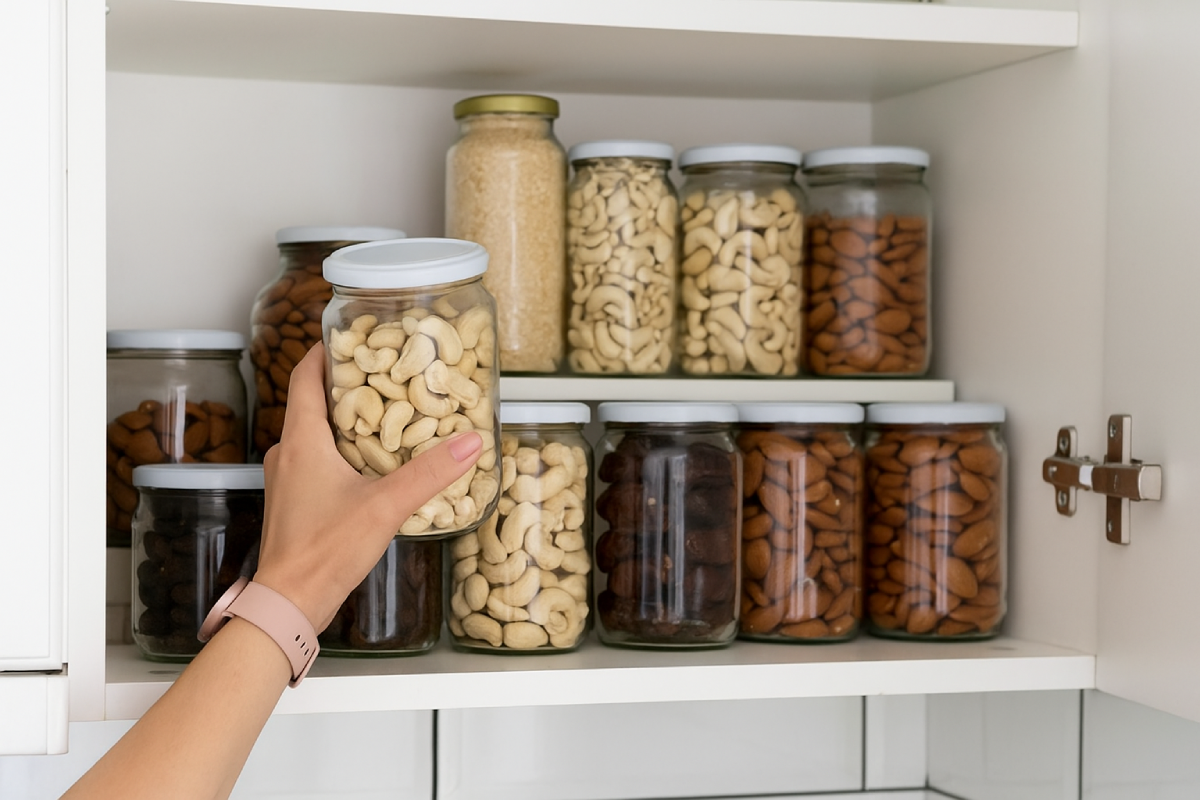
Avoid storing near stoves, ovens, or sunny windows. The ideal place? A cool, dark cabinet or pantry.
- Use Food-Safe Desiccants
Add a food-grade silica gel packet inside the container. It helps absorb excess moisture and protects your dry fruits.
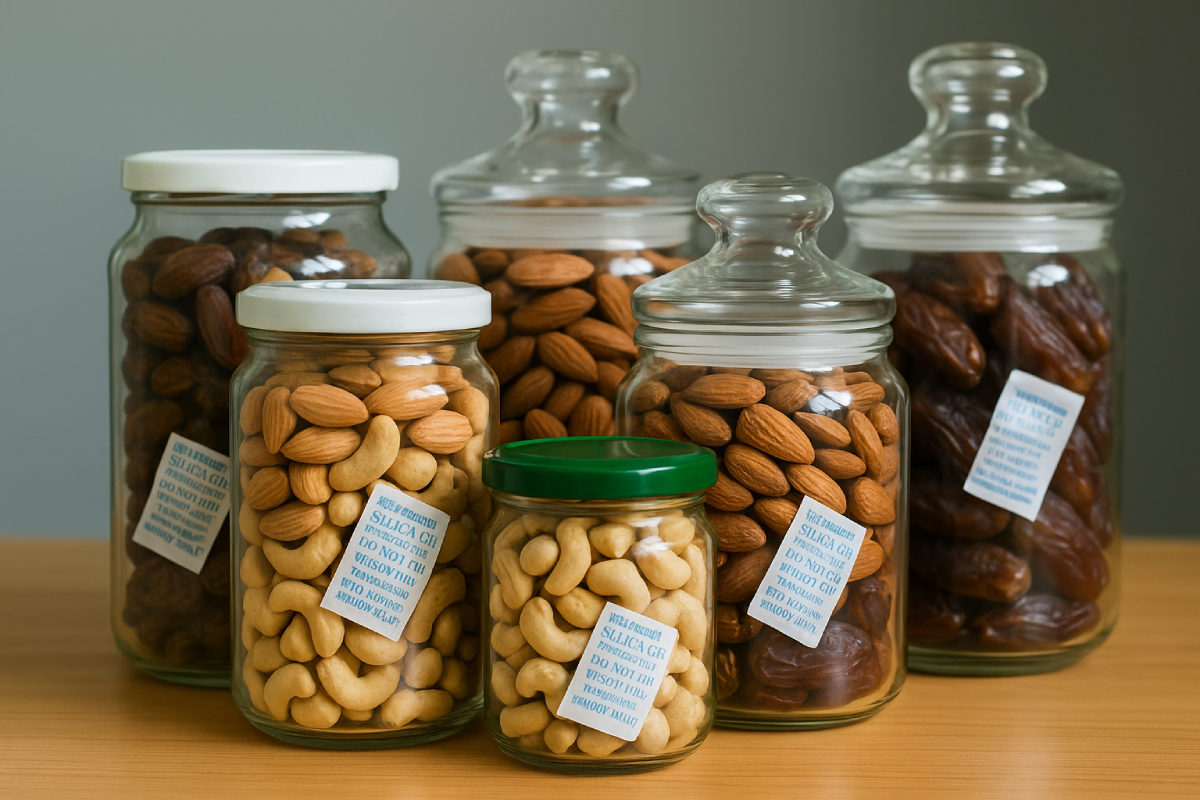
- Avoid Wet Hands and Spoons
Never touch or scoop out dry fruits with wet hands. Even a drop of moisture can cause spoilage.
- Label & Rotate Your Stock
Always use the “first in, first out” method. Use older stock first and label your jars with the date of purchase.
Vacuum-Sealing: The Gold Standard for Monsoon Storage
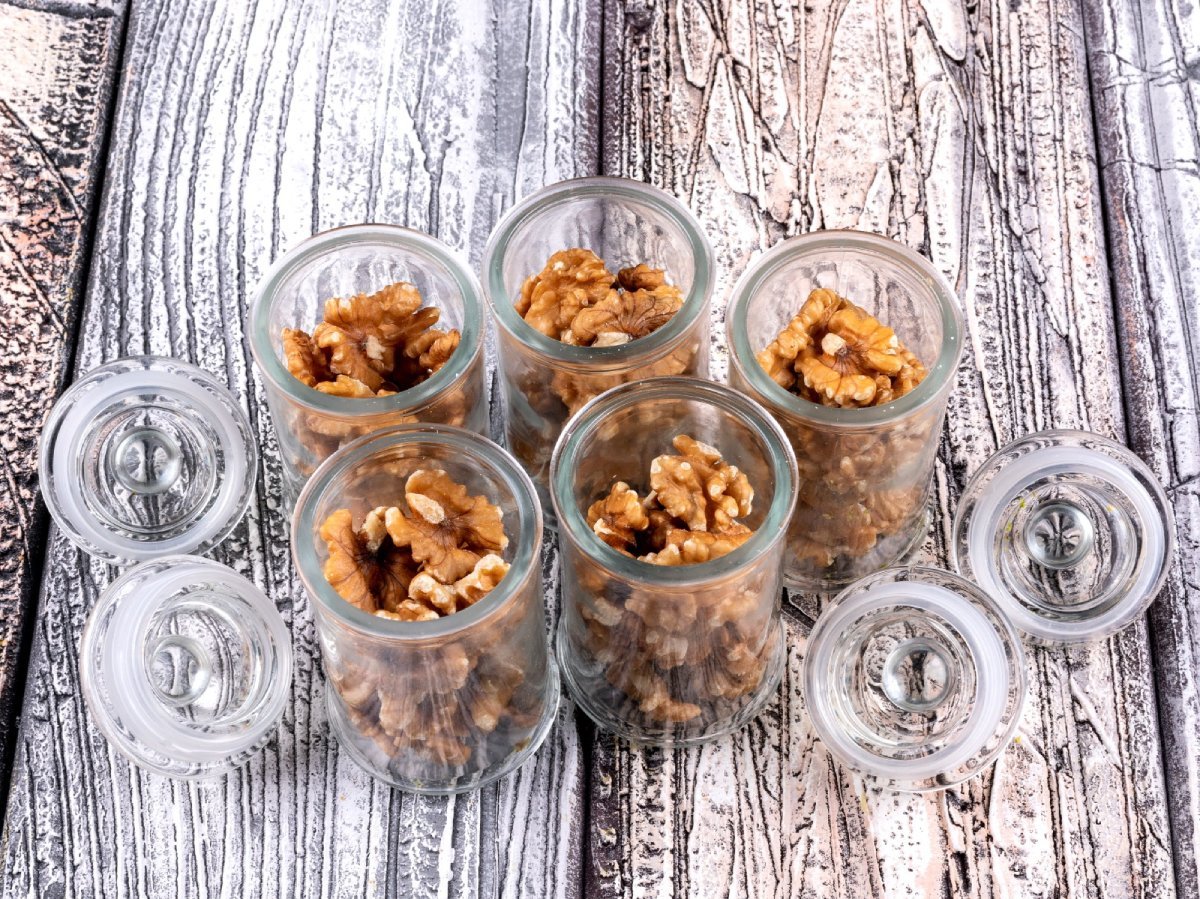
One of the best ways to store dry fruits during monsoon is to vacuum-seal them. It:
- Removes air and moisture
- Slows down oxidation
- Extends shelf life by weeks
- Prevents pests and fungal growth
At Occasions, we use vacuum-sealed, travel-safe packaging to ensure your dry fruits arrive as fresh as the day they were packed — even in the peak of monsoon.
Storage Tips by Dry Fruit Type
- Almonds
- Slightly roast before storing to reduce internal moisture
- Store in airtight glass jars
- In very humid climates, refrigeration is recommended
- Cashews
- Highly prone to absorbing moisture
- Store in small, air-tight batches
- If storing large quantities, refrigerate and refill smaller jars weekly
- Dates
Dates contain natural sugars and moisture, making them more prone to spoilage than other nuts.
- Wrap dates in parchment paper or place in a zip pouch
- Keep refrigerated during monsoon months
- Use a clean, dry spoon to remove dates from the container
- Avoid storing with other nuts to prevent cross-moisture
Even within dates, Ajwa and Medjoul varieties are softer and richer — and need extra care to retain their flavor and texture. Their shelf life is naturally lower, so buy in smaller batches if needed.
How Occasions Ensures Safe Shipping & Freshness
When you order from Occasions, you’re not just buying dry fruits — you’re buying quality and safety:
Vacuum-Sealed Packaging
Our dry fruits are packed in vacuum-sealed pouches that are moisture-resistant and airtight.
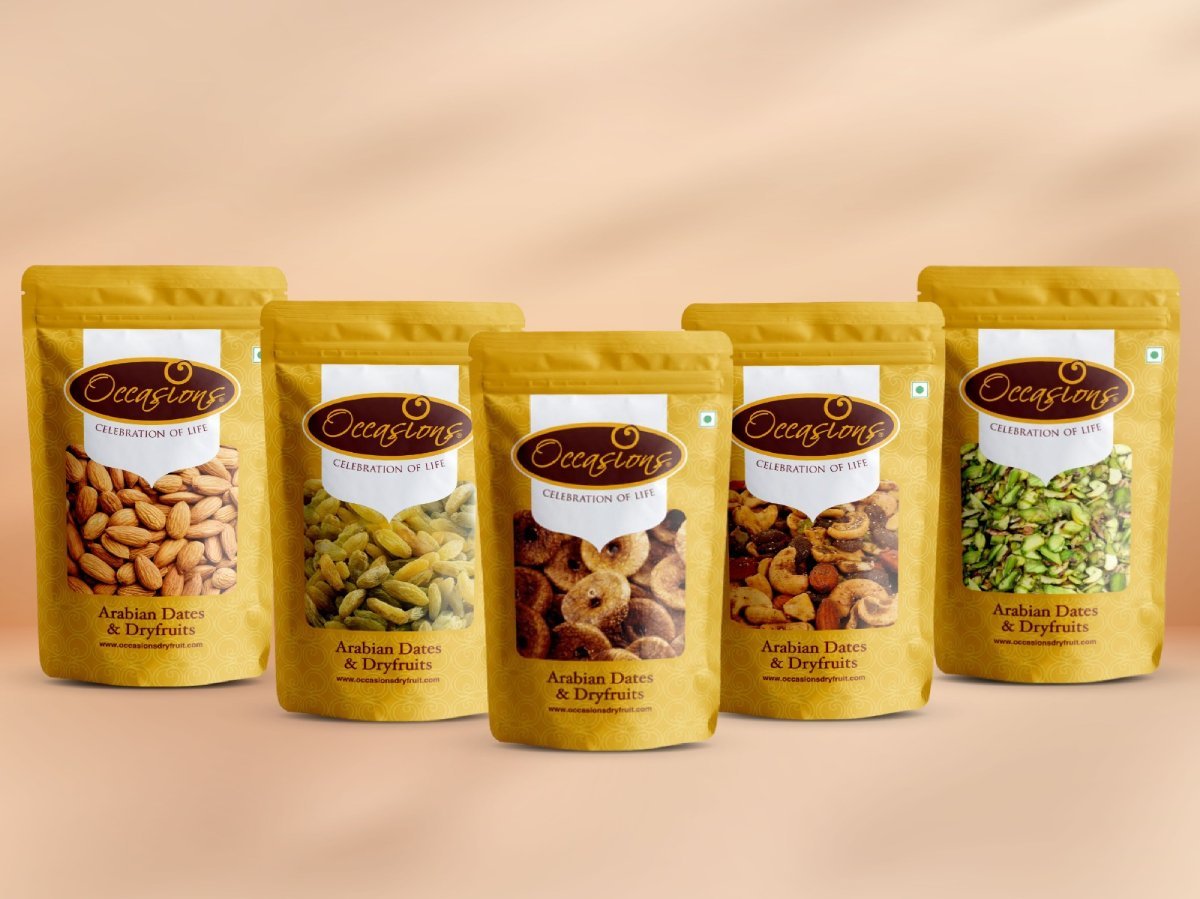
No Preservatives
We believe in natural goodness. All our products are free from artificial preservatives or stabilizers.
Safe Shipping, Even in Monsoon
Our logistics partners and packaging ensure that your dry fruits arrive in pristine condition — no matter the weather.
Reusable Containers
Many of our gift boxes and pouches come in jars or boxes that are perfect for home storage too.
How Often Should You Check Your Dry Fruits?
Even with all the precautions, regular inspection is key. Here’s what to look for:
- Smell: Any musty or sour odor means the batch is compromised.
- Color: If you notice white spots, unusual darkness, or stickiness – discard immediately.
- Texture: Crunch should be intact. If soft or chewy, it may have absorbed moisture.
Make it a habit to check every 7–10 days, especially in July and August.
Bonus Tips for Long-Term Storage
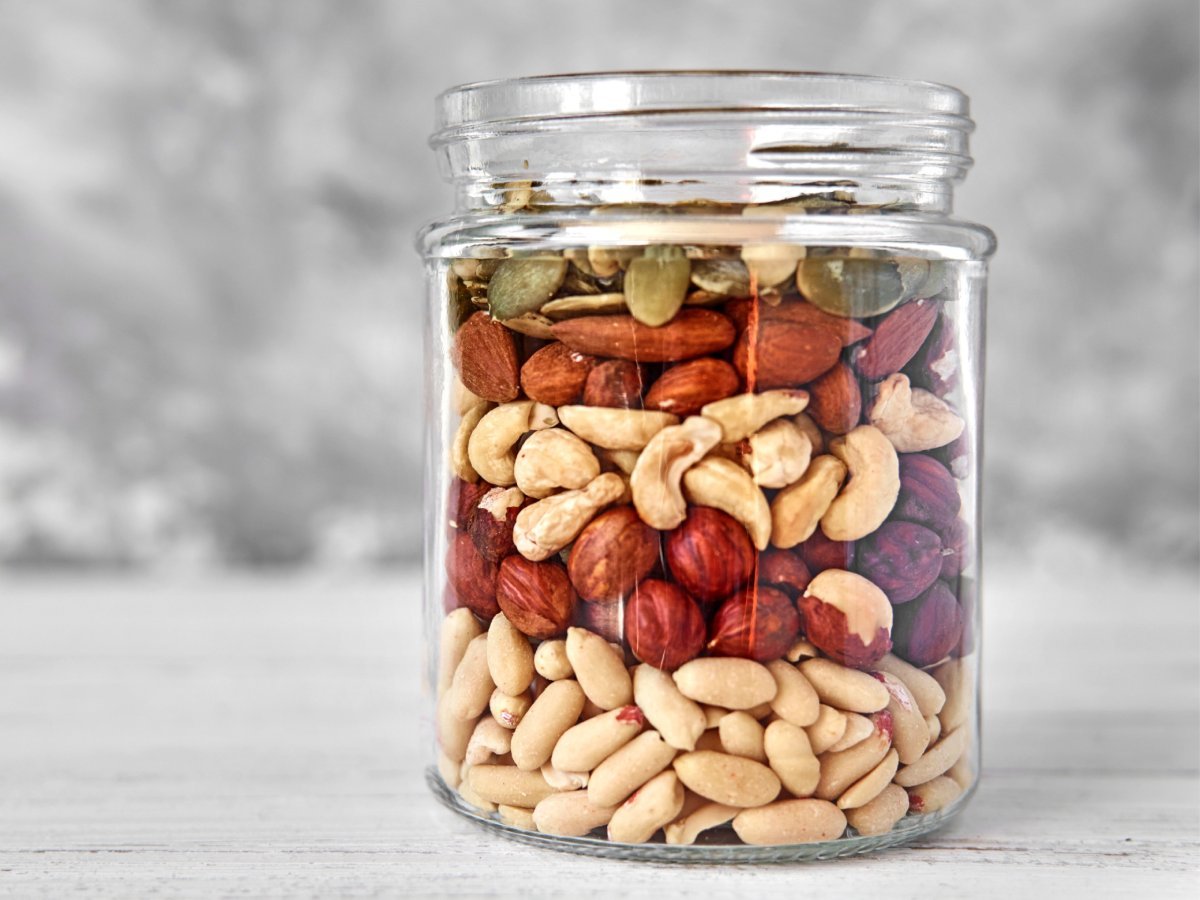
- Store a portion in the refrigerator (if not vacuum-sealed)
- For long trips, carry only sealed pouches
- Store in small containers to reduce exposure during opening
- Freeze chopped or powdered dry fruits if using them in baking or cooking
You’ve invested in the finest dry fruits – don’t let moisture ruin the experience. With the right storage practices and Occasions’ vacuum-sealed, preservative-free packaging, your almonds, cashews, pistachios, and dates can stay fresh all through the season.
Now that you know how to store dry fruits in humid weather, you can enjoy your daily dose of nutrition and flavor without worry. Explore Occasions’ full range of monsoon-ready dry fruits – safe, sealed, and shipped fresh to your doorstep.


